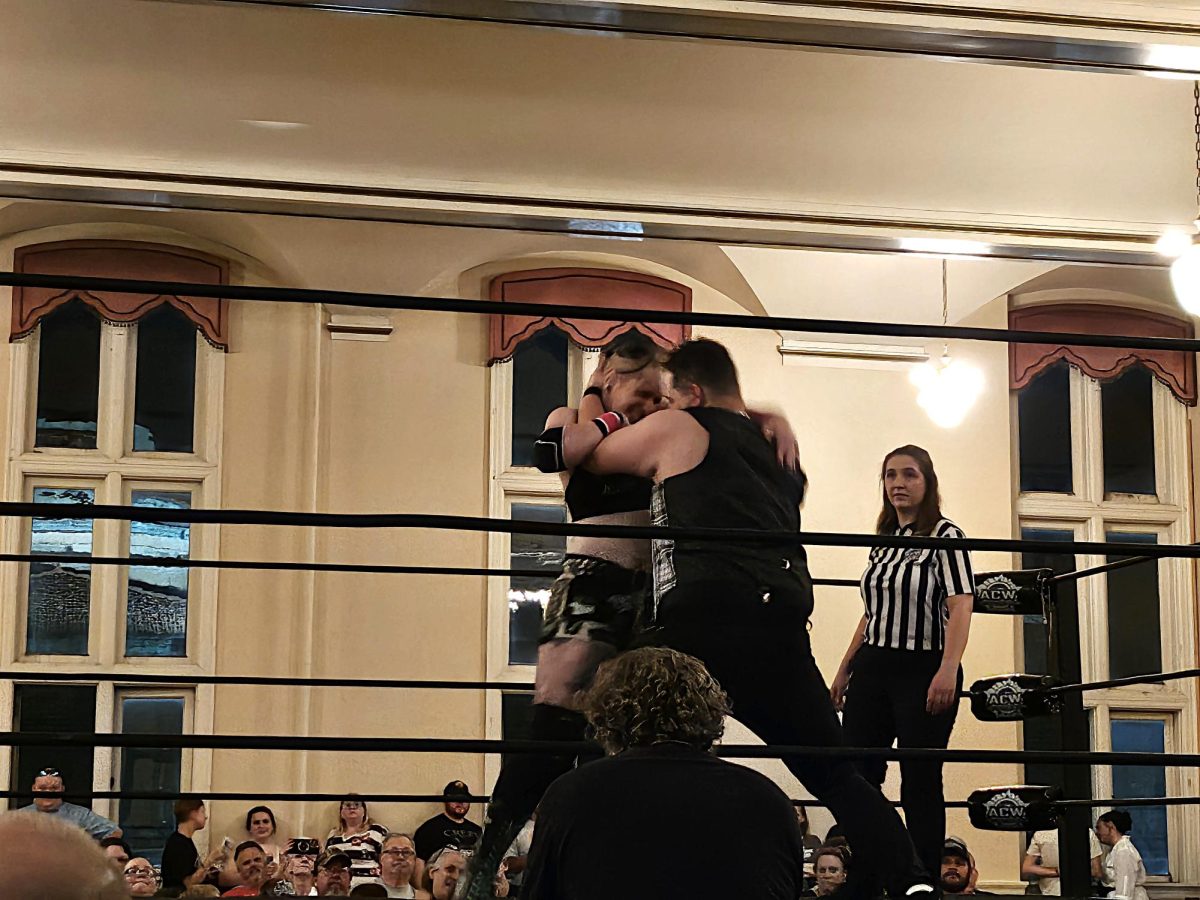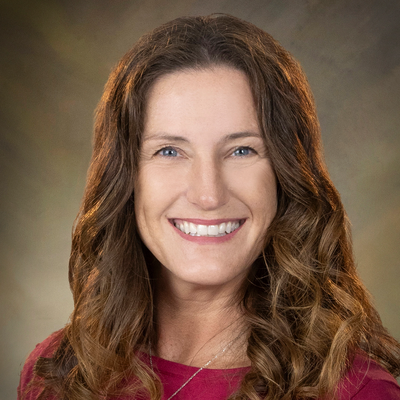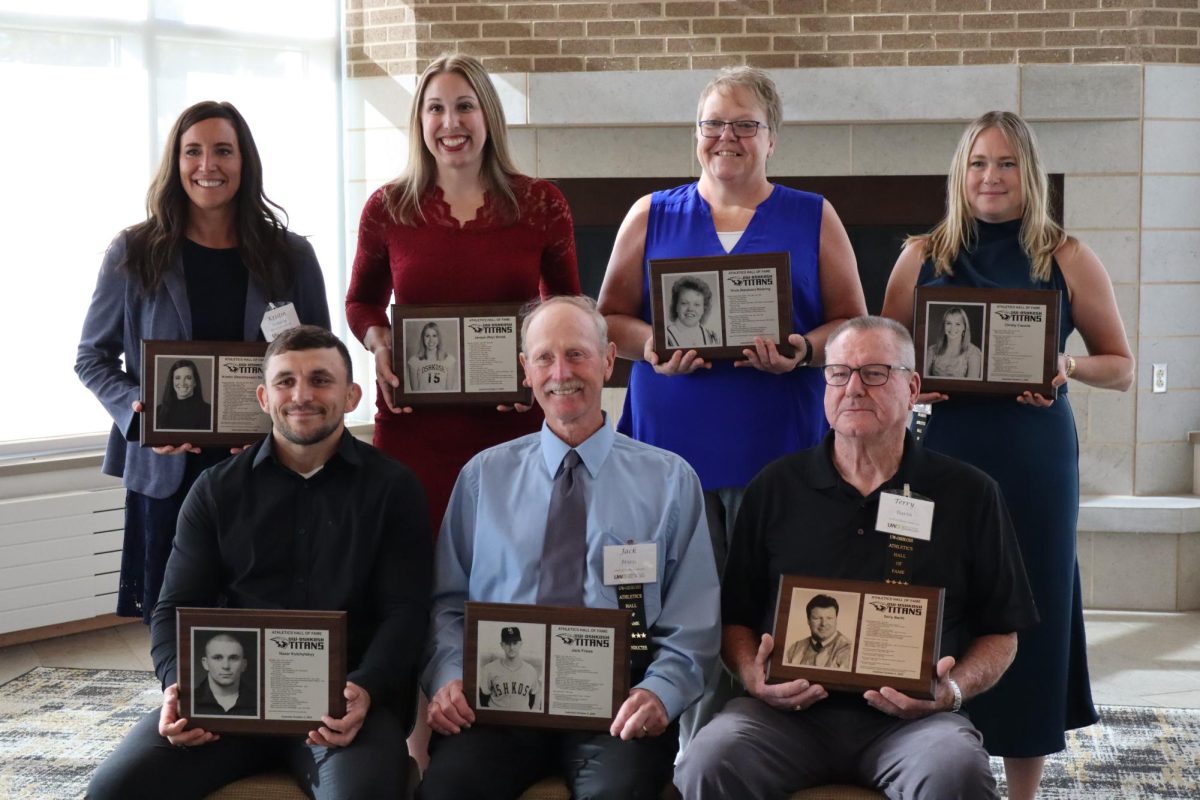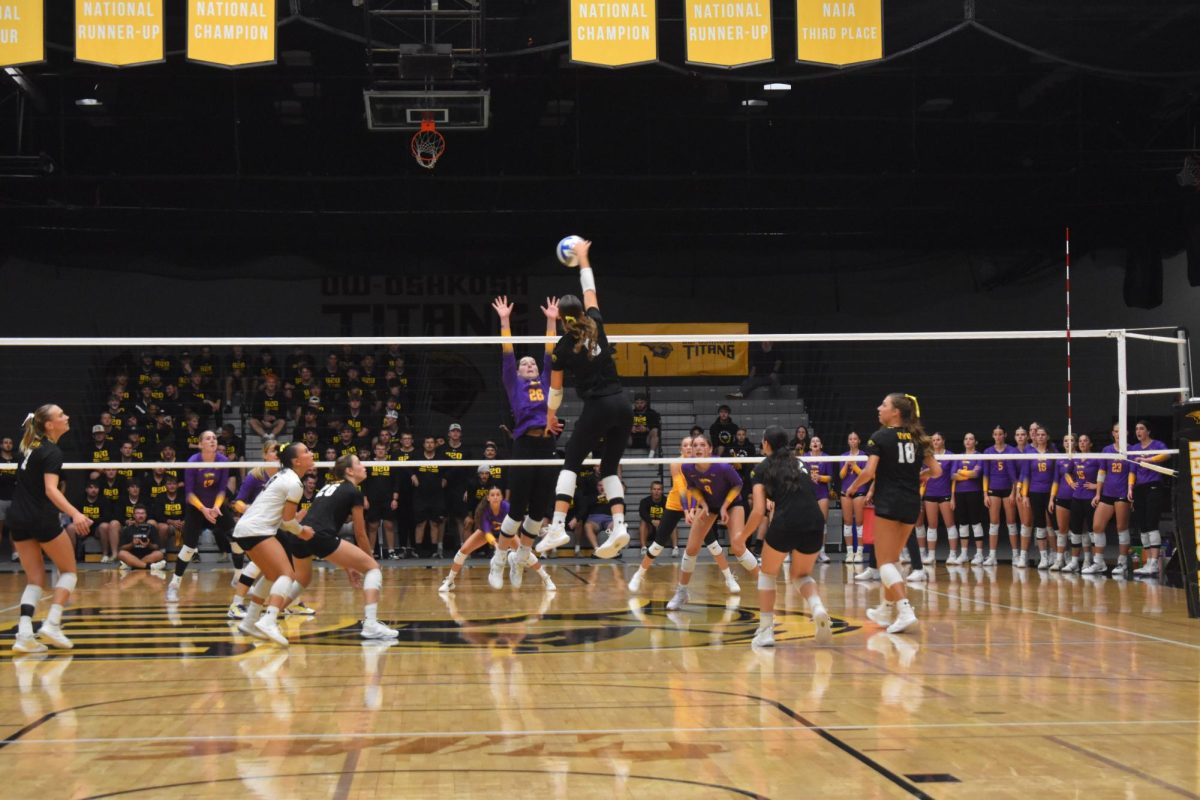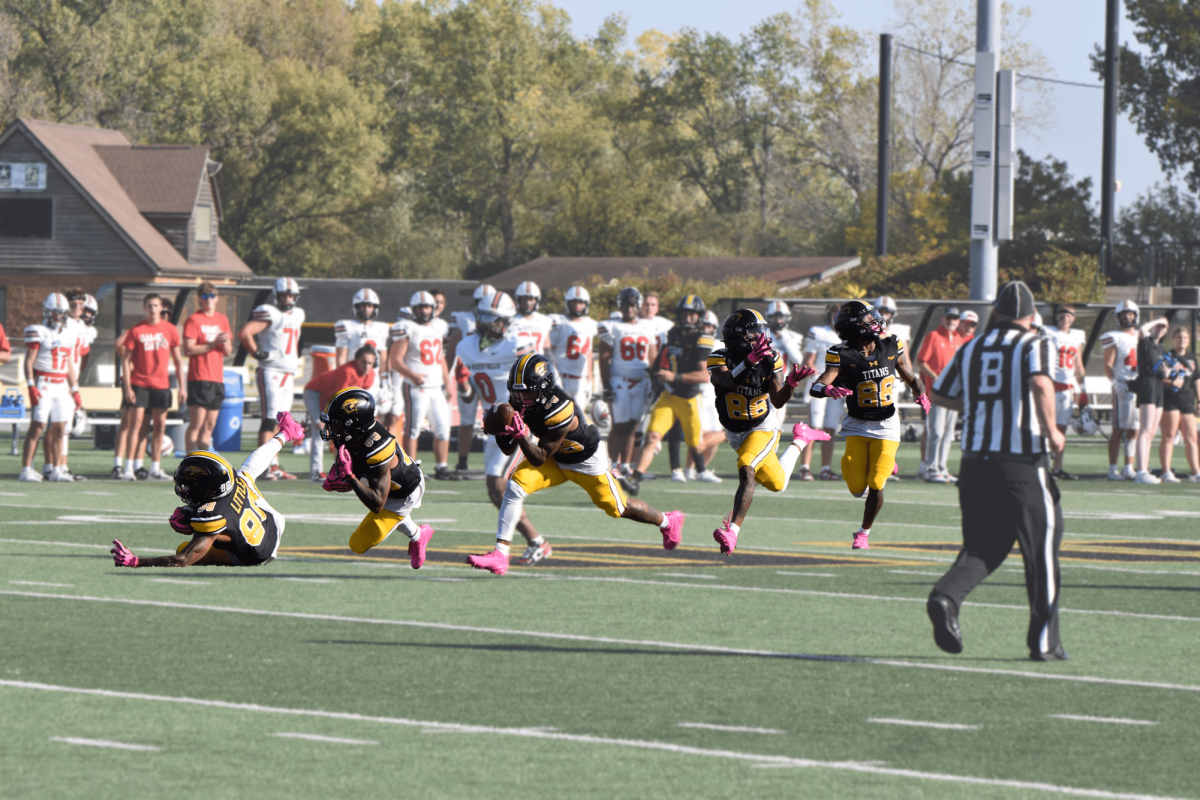On Oct. 22, 1984, 11 men from UW Oshkosh stepped onto their home pitch for the first time to play soccer against UW-Whitewater. 31 years later, 11 men from the same school stepped onto their home field against the same opponent for the last time in program history.
In 1984, the UWO men’s soccer team lost its final home game of the season in overtime, 1-2, against UW-Whitewater. That year marked the first season for the program and their overall record was 6-7. There were 19 men on the roster, and Toby Bares was the head coach.
1984 was the only losing season that the UWO men’s soccer team would ever experience. After that year, the team would be at least .500 every season.
Fast forward 31 years and two days later. UWO is playing against UW-W. They go into double overtime and tie the Warhawks 0-0.
The 2015 team looks very different compared to the 1984 team. This time, their overall record is 11-3-3, there are 30 men on the roster and Wytse Molenaar is the head coach.
The 2015 game against the Warhawks was not only the Titans’ last home game of the season, but it was also the last regular-season home game that the program would ever play.
For freshman midfielder Elijah Tesch, that game is his favorite memory in his short time playing for the Titans.
“The Whitewater game was a great experience,” Tesch said. “With the combination of the last home game, senior night and a large cheering section, the atmosphere was incredible.”
The 2015 men’s soccer season started before UWO’s first game of the season against Loras College on Sept. 1. Five months prior the team heard some of the worst news that it possibly could.
In April 2015, it was announced that UWO’s men’s soccer and tennis programs would be cut after the 2015-16 season because of Gov. Scott Walker’s two-year budget cut.
Over the next three years, UWO expects that there will be about a $7.5 million shortfall. Cutting the men’s soccer and men’s tennis programs will save the University about $100,000.
Tesch is an example of a freshman who was not aware of the team being taken away before deciding on attending UWO.
“I did not know about the program being cut until after I enrolled here,” Tesch said. “It was such a shock when I first found out; it was obviously something that had never crossed my mind.”
Joe Herkowski, a class of 1999 alum and soccer player, quickly became interested when he found out that the program was being cut. When the “Save UWO Soccer” campaign started, he jumped on board as a committee member.
“I was shocked, angry and let down,” Herkowski said. “I still cannot fathom how they cut this program with all its success and legacy. Listen, I own my own business, so I get tough decisions have to be made at times for budget reasons, but why not let the alumni help?”
Herkowski said there are other cuts the University can make instead of cutting the soccer program.
“I coached at Oshkosh and realized the budgets then,” Herkowski said. “Why not cut a couple of assistants from football or basketball? Shorten the rosters? The men’s soccer team ran very efficiently in terms of costs, had a ton of success with a small budget and [the University] cut this program… It should be a model for other programs in terms of what the program did with such few dollars… Instead, they cut it.”
However, lack of money is not the only reason why the program is being disbanded. The Wisconsin Intercollegiate Athletic Conference was dissolved this year. Thus, the team doesn’t have a shot at an automatic qualifier which means it is more difficult to make it to the NCAA tournament.
According to Wesley Abrahamson, a 2001 graduate and the legal committee chairman for “Save UWO Soccer”, there was a time when there was hope the program may not be cut. Abrahamson said, at the end of the summer, Chancellor Levitt told alumni that it would be tough to cut the soccer program if they were able to rebuild the WIAC.
“What made it short is that [Darryl] Sims would not help,” Abrahamson said. “He was content to watch this program go away. He did not want any part of it.”
Abrahamson said there was no way that the alumni would be able to recreate the WIAC without any help from administration.
Coach Molenaar said the 2015 season was unlike any other since he started coaching at UWO six years ago.
“This season, I would say in one word, was different,” Molenaar said. “There was always a lot going through the guys’ minds and even the staffs’. It was not your normal season, all because of that announcement.”
Assistant coach Benjamin Winter said he is proud of the way the players handled the situation and stayed positive.
“These guys have been so focused on the goal,” Winter said. “With the decision that was made, they could have caused problems, but every single thing they did was responsible. You have to expect some sort of backlash when a decision like that is made. But you didn’t have guys causing problems; instead, the way they handled themselves as a whole should be acknowledged.”
But at times, what was happening off the field got in the way of what was happening on the field. There was one week in particular, Molenaar said, when he thought that the drama got to be too much on the team. The men lost both matches within a span of four days.
“There was one week–the week when we played UW-Platteville and Luther College–that was not a good week,” Molenaar said. “They had a lot on their minds. The negative pressures had a big effect on them that week.”
Even with all of the distractions, the men’s soccer team was able to go 11-3-3. Molenaar said his team was able to stay focused on the things that they could control, which helped them be successful.
For defender Matthew Cheaney, being a senior made the circumstance more simple to handle. He was able to use what he learned in previous seasons to his advantage.
“Having three years under my belt, I knew what needed to be done from a game management perspective, as well as from a leadership role,” Cheaney said. “I would like to think we led by example and took the highs and lows together as a team.”
However, for the younger players, the season was a little bit more complicated. For the juniors, sophomores and freshman on the team, this fall was a time for them to decide whether they want to stay at UWO and focus on academics or look into transferring to another school to play soccer.
Winter believes that, although the players are athletes, being students is more important.
“Schooling has to come first,” Winter said. “However, after that, if that school offers a soccer program, go play. For the upperclassman, they could lose some credits if they decide to transfer, but if the school fits and it has soccer, you should keep on going.”
Senior midfielder Michael Dugan’s biggest piece of advice for the underclassmen is to do what they think is best for themselves.
“I would tell them to follow their heart,” Dugan said. “If they are ok with leaving Oshkosh and all of the friends they have made here, then they should leave and find an opportunity on another soccer team.”
Tesch said he is not leaving UWO to play soccer for a different university.
“I’m staying at Oshkosh,” Tesch said. “If the program doesn’t come back, it will be different not playing soccer at a competitive level. It’s something all the guys and I have done for many years.”
On Monday, Nov. 9, the team will find out whether they secured a spot in the 2015 NCAA tournament. The selection show is at 12:30 p.m.
Molenaar said that it is still too early to predict whether or not his team made it. There will be just as much anticipation this year as there has been in the past.
“We are just going to sit back and say that we did everything we can,” Molenaar said. “We have no influence in what is going to happen on Monday.”
Molenaar said he’s proud of his players because they stood up for what they believed in.
“Regardless of anything that happens, this year’s group has been absolutely unbelievable,” Molenaar said. “I do not think that making the NCAA tournament or even winning the title can even compare to what they did this season… This season is something that they will keep with them forever.”
Junior goalkeeper Sam Gabrilska said being on the team helped him develop a clear and strong mindset on priorities in life and what is most important.
“There is much more to take away from the program than memories I made on the field,” Gabrilska said. “Having been two years removed from competitive play [high school] and joining the team as the ‘new guy’ a week before training camp three years ago, I was struggling in classes and finding my niche at the University. Without playing on the team, I honestly don’t know if I would even be in school at this point.”



